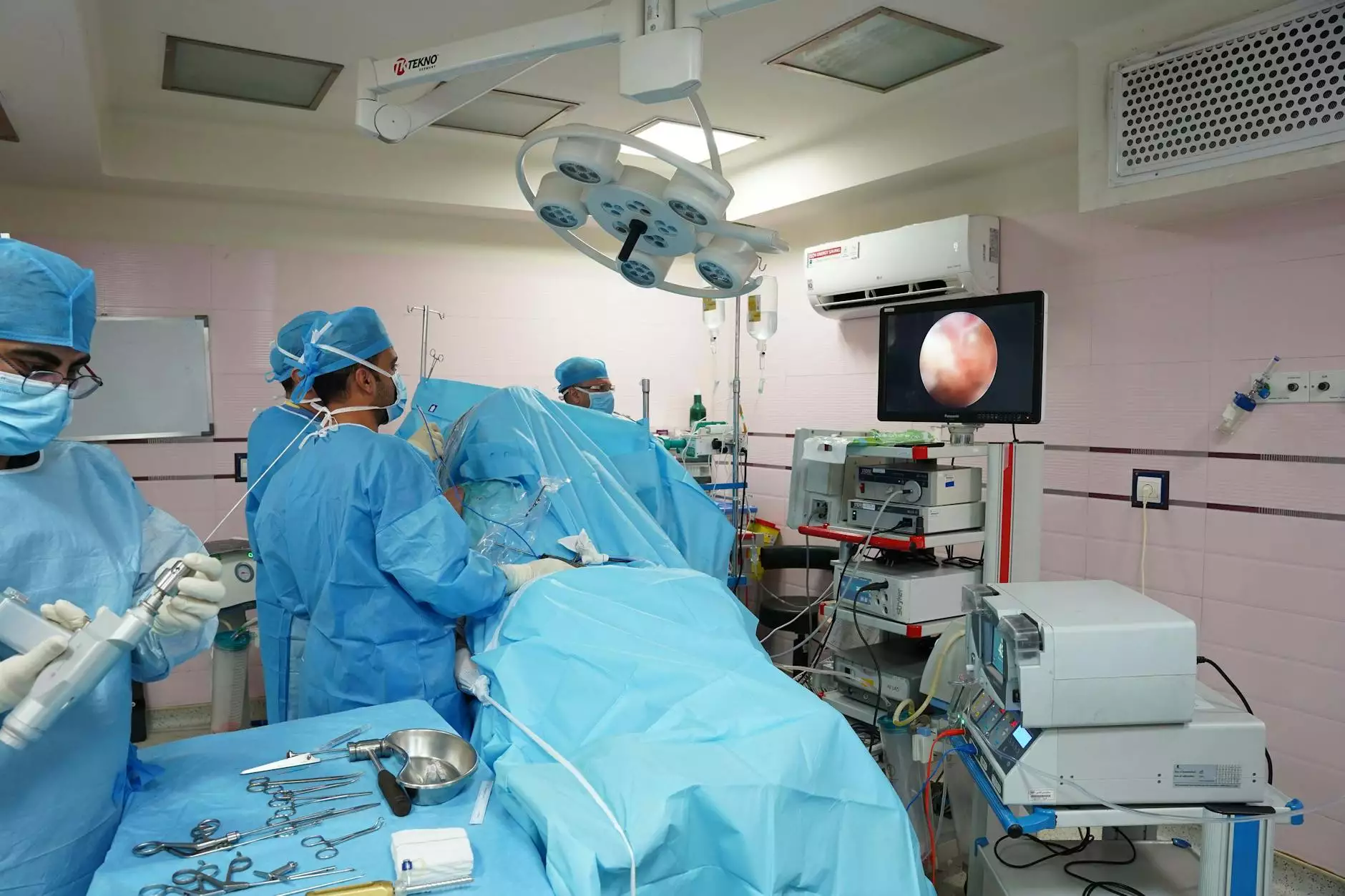Pulmonary Surgeons: The Experts in Lung Health

Pulmonary surgeons play a crucial role in the medical field, focusing on the diagnosis, treatment, and management of various lung conditions. From lung cancer to chronic obstructive pulmonary disease (COPD), these specialized doctors are equipped with the knowledge and skills necessary to address complex health issues related to the respiratory system. In this article, we will delve into the extensive world of pulmonary surgery, highlighting the importance, procedures, and advancements in this vital area of healthcare.
Understanding the Role of Pulmonary Surgeons
Pulmonary surgeons, also referred to as thoracic surgeons, are medical professionals specializing in surgical interventions involving the lungs and other organs within the thoracic cavity. Their expertise encompasses a wide range of conditions, including but not limited to:
- Lung cancer
- Interstitial lung disease
- Congenital lung disorders
- Infectious lung diseases (e.g., tuberculosis)
- Thoracic injuries
These specialists not only perform surgeries but also work collaboratively with pulmonologists, oncologists, and other healthcare professionals to ensure comprehensive patient care. Their ability to diagnose complex conditions and recommend appropriate surgical options makes them invaluable in the treatment of lung-related ailments.
The Importance of Pulmonary Surgery
Pulmonary surgery is critical for several reasons:
Life-Saving Interventions
Many lung conditions can be life-threatening if not treated promptly. Pulmonary surgeons are trained to perform procedures that can save lives, such as:
- Lobectomy: Removal of a lobe of the lung, often performed for localized lung cancer.
- Pneumonectomy: Complete removal of one lung, typically indicated for severe cancer cases.
- Wedge Ressection: Removal of a small section of lung for tissue analysis or to treat small tumors.
Improvement of Quality of Life
Surgical interventions can significantly improve the quality of life for patients suffering from chronic lung diseases. By removing diseased tissue or repairing lung structures, these procedures can lead to enhanced breathing and reduced symptoms.
Advancements in Surgical Techniques
With the advent of advanced technology, pulmonary surgery has experienced significant advancements. Techniques such as video-assisted thoracoscopic surgery (VATS) and robotic-assisted surgeries allow for minimally invasive procedures, reducing recovery time and minimizing scars.
Common Surgical Procedures Performed by Pulmonary Surgeons
Below are some of the most common surgical procedures performed by pulmonary surgeons:
1. Video-Assisted Thoracoscopic Surgery (VATS)
VATS is a minimally invasive technique that requires only small incisions in the chest. This approach is often used for:
- Diagnostic biopsies
- Removal of small tumors
- Pleural effusion drainage
- Decortication for pleural thickening
2. Robotic-Assisted Surgery
This cutting-edge technique allows surgeons to perform complex procedures with enhanced precision and control. Robotic-assisted surgery can be particularly beneficial for:
- Complex resections
- Resections in patients with severe lung disease
- Operations where visualization is crucial
3. Chest Wall Reconstruction
In cases of thoracic trauma, tumors, or congenital deformities, chest wall reconstruction may be necessary. This procedure aims to restore the integrity of the chest wall and improve respiratory function.
4. Lung Transplantation
In severe cases of lung disease where other treatments have failed, lung transplantation may be considered. This complex procedure involves replacing a diseased lung with a healthy one from a donor.
Patient Care and Support
The journey through pulmonary surgery can be daunting for patients. Pulmonary surgeons play a comprehensive role in patient care, which includes:
Preoperative Care
Before any surgical procedure, pulmonary surgeons conduct thorough evaluations to determine the best course of action. This includes:
- Medical history assessments
- Diagnostic imaging (X-rays, CT scans)
- Pulmonary function tests
- Counseling on the procedure, risks, and benefits
Postoperative Care
Post-discharge care is crucial for recovery. Patients are monitored for potential complications and provided with:
- Pain management strategies
- Guidance on rehabilitation exercises
- Instructions on lifestyle modifications for improved lung health
Emotional Support
Undergoing lung surgery can be emotionally taxing. Pulmonary surgeons often coordinate with support staff, including social workers and counselors, to provide holistic support for patients and their families.
Emerging Trends in Pulmonary Surgery
The field of pulmonary surgery is continuously evolving, with several emerging trends that promise to enhance patient care:
Personalized Medicine
Advancements in genetics and molecular biology are paving the way for personalized treatment plans tailored to an individual's genetic makeup. This approach allows for more effective targeting of lung diseases.
Enhanced Recovery After Surgery (ERAS) Protocols
ERAS protocols are designed to optimize recovery after surgery. These protocols emphasize:
- Minimizing narcotics
- Early mobility
- Nutritional support
Telemedicine
With the rise of telehealth services, patients can now consult with pulmonary surgeons remotely. This not only makes care more accessible but also allows for regular follow-ups post-surgery without the need for travel.
Finding the Right Pulmonary Surgeon
Choosing a pulmonary surgeon is a critical step in managing lung health. Here are some tips to consider:
1. Credentials and Experience
Ensure the surgeon is board-certified and has extensive experience in pulmonary surgery. Research their background, including the number of procedures they have performed.
2. Hospital Affiliations
Inquire about the hospitals where the surgeon operates. Prestigious hospitals with advanced facilities often correlate with better outcomes.
3. Patient Reviews
Look for patient testimonials and reviews to gauge the surgeon's bedside manner and the overall patient experience.
4. Communication
A surgeon should be approachable and willing to answer questions. Ensuring clear communication can significantly impact the patient experience.
Conclusion: The Future of Pulmonary Surgery
Pulmonary surgeons are at the forefront of treating some of the most challenging health issues related to the lungs. With their specialized skills and knowledge, they are pivotal in saving lives and improving the quality of life for countless patients. As technology advances, the field of pulmonary surgery will continue to innovate, offering even more effective treatments for lung diseases. For anyone facing lung health challenges, consulting with a qualified pulmonary surgeon is an essential step towards achieving optimal health.
For more information and to consult with expert pulmonary surgeons, visit neumarksurgery.com.









